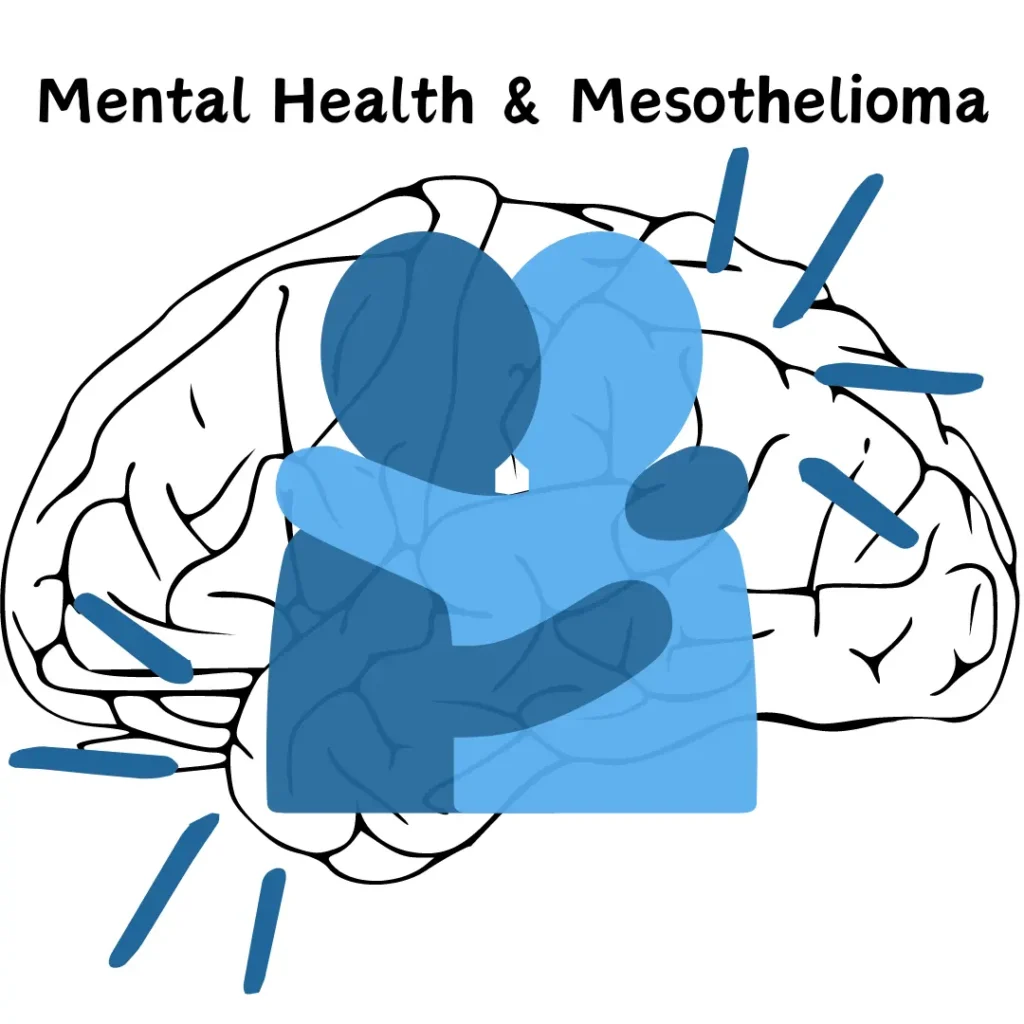Key takeaways: Mesothelioma patients and their caregivers often deal with poor mental health
during the diagnosis and treatment processes, including depression, anxiety, and stress. While
these symptoms don’t affect the progression of mesothelioma, they do affect patient well-being
and willingness to seek out care. Traditional therapies, like talk-therapy, medication, and support
groups have proven successful for mesothelioma patients. Some researchers suggest that
mandating a communication course for healthcare professionals could help alleviate patient
anxieties while increasing realistic optimism.

Does a Mesothelioma Diagnosis Affect Mental Health?
Mesothelioma is an aggressive cancer that is known to be associated with asbestos exposure.
Currently, there is no cure for mesothelioma; however, there are a myriad of treatment options—
ranging from chemotherapy to novel vaccines to surgery—that facilitate remission, physical
relief, or comfortability for patients. Because mesothelioma is aggressive and without cure,
patients may feel hopeless, confused, or despondent. A recent study (2024) administered a
survey and conducted semi-structured interviews with mesothelioma patients and caregivers. The
researchers found that, of the 96 surveyed, 50% reported anxiety, 30% reported a clinical
depression level, and 33% reported post-traumatic stress symptoms. Interestingly, another study
(2020) found that informal caregivers—family members or spouses—reported significantly
higher levels of post-traumatic stress than the patients themselves. To put these findings in
conversation: these high levels of anxiety, stress, and depression make the treatment of
mesothelioma more fraught with emotional intensity. While anxiety and depression don’t make
the physiological condition of mesothelioma worse, they do exacerbate the patient’s mental and
emotional burdens. This has serious consequences for the ways that patients pursue treatment,
incorporate purpose into their daily lives, and seek out legal justice.
Are There Ways to Address Mental Health and Mesothelioma?
Traditional strategies for addressing mental health problems, like talk-therapy, medication, and
support groups, are useful for mesothelioma patients. However, because mesothelioma is
associated with asbestos exposure, patients also report that collective action and legal justice help
with mental health-related issues. Activism lends itself towards prevention for the future, which
suffuses meaning into patients’ lives. A majority of mental health-related work focuses on
meaning-making by helping patients ground their actions in purposes beyond them. Sometimes,
patients’ purposes might be clouded by anxieties about treatment, disease progression, or
confusion; the aforementioned strategies help tremendously.
Another strategy that the literature suggests is a revamping of the ways in which doctors
communicate information. Researchers suggest a mandated course in communication skills, in
which healthcare providers learn how to mix optimism and realism in their patient interactions
(especially with the initial diagnosis). Their patients obviously need to be informed, but there are
ways to do so that prioritize their mental health and mitigate unnecessary anxieties. For instance,
doctors can recommend treatment options and clinical trials during the diagnostic process; this
way, patients can be both informed and hopeful about their condition.
If you or a loved one has been diagnosed with mesothelioma, please call 1 (800)-505-6000 or fill
out our form. We are here to help you navigate the legal process of filing a claim to receive
compensation for your mesothelioma diagnosis. We help mesothelioma victims and their
families in Pennsylvania.
Sources:
https://www.sciencedirect.com/science/article/pii/S146238892400070X
https://www.sciencedirect.com/science/article/pii/S1462388924000437